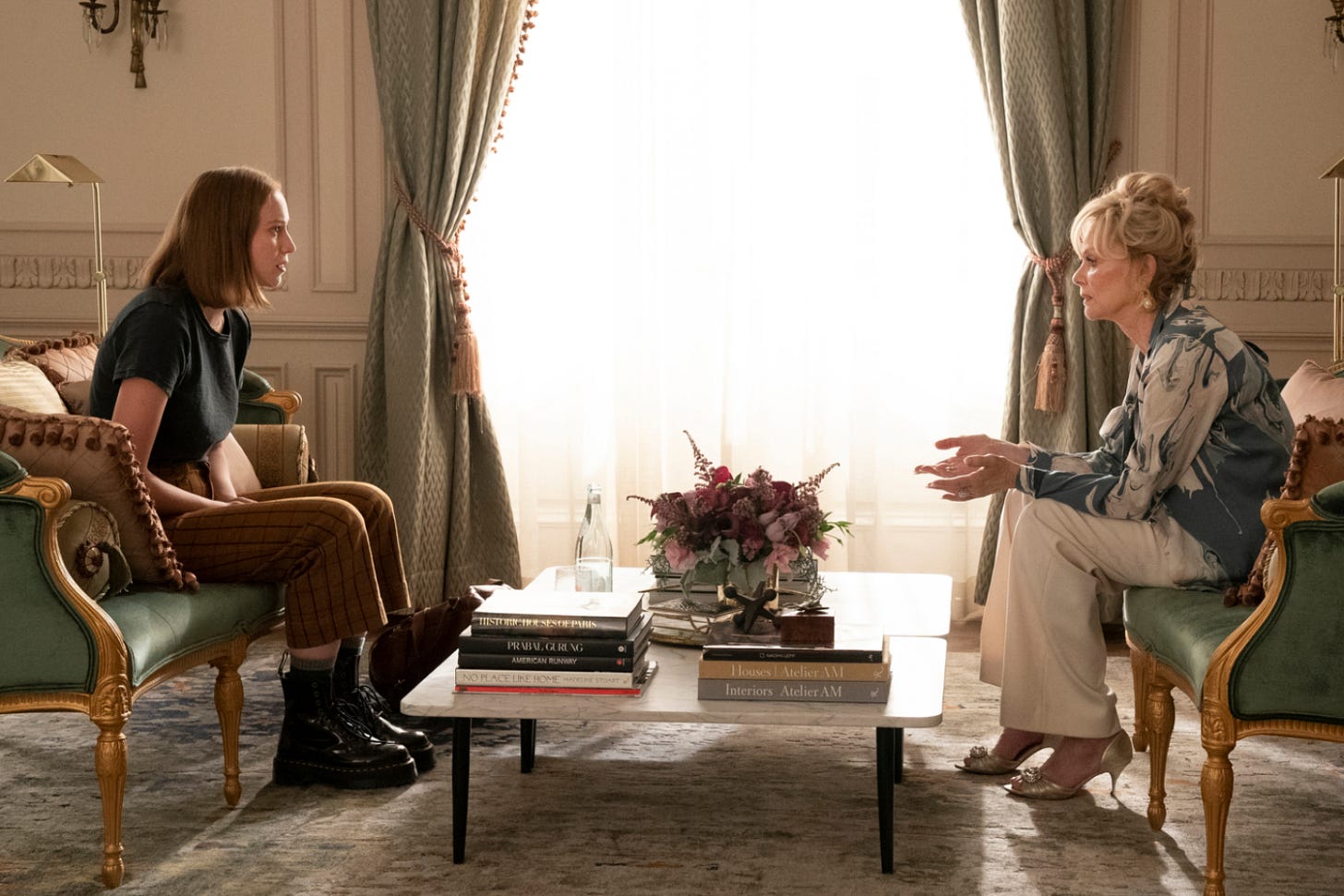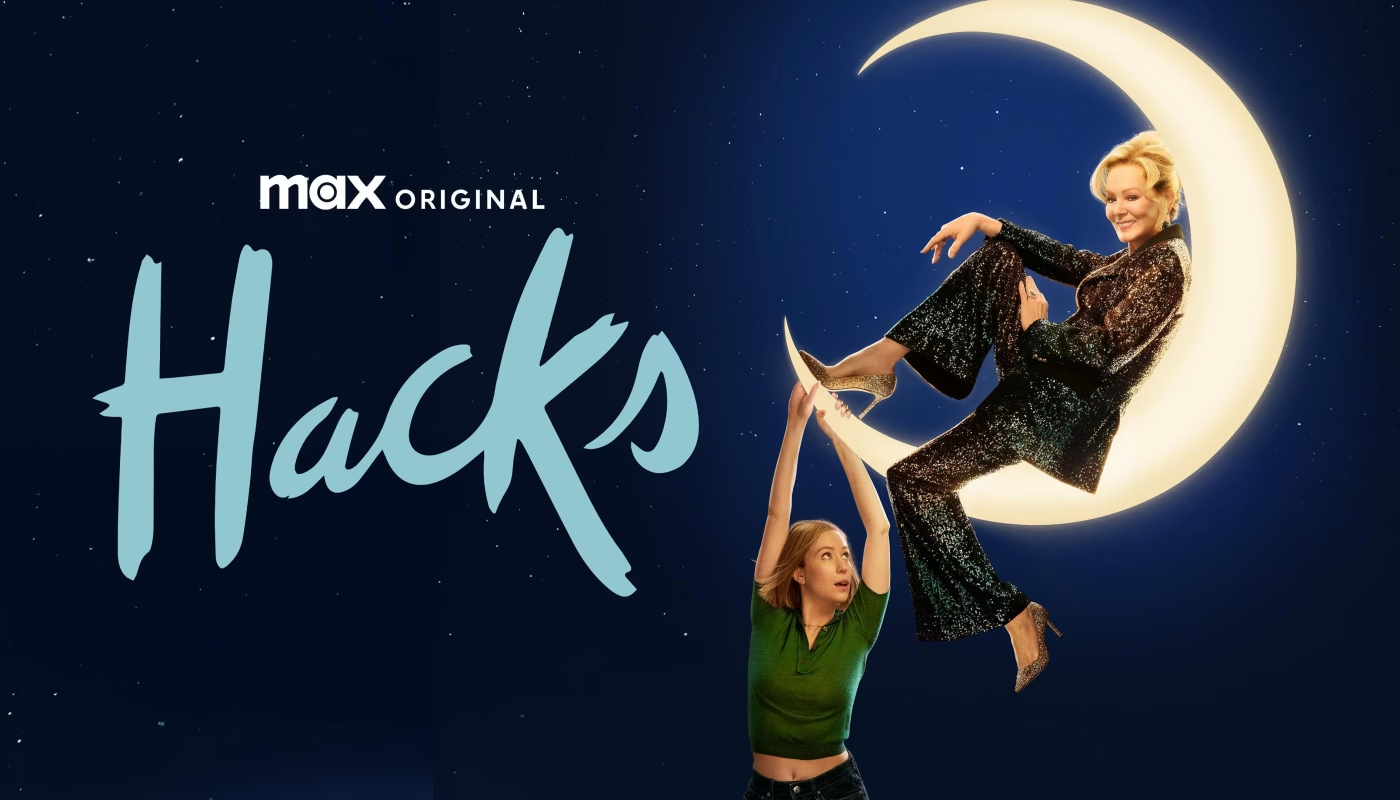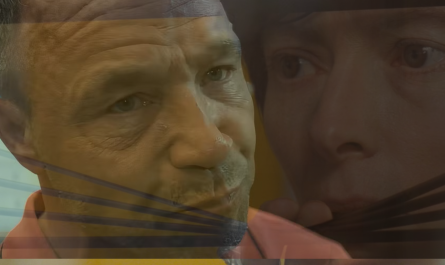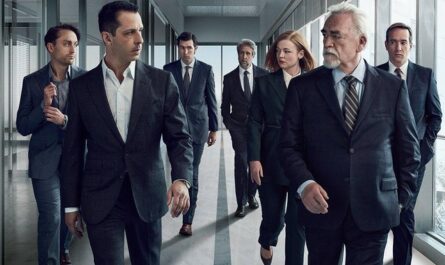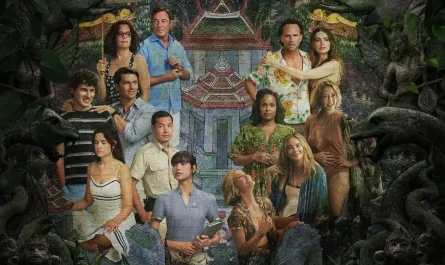As the title says, I’ve been dealing with a depressive episode this last month after years of being mentally okay. I had a bad depression throughout my entire adolescence and got treated in my early twenties. It has been a couple of years since I last felt depressed until a couple of months ago when I started feeling the lack of energy and motivation dragging me down. The issue with these types of episodes is that they hit when you least expect them, it’s almost like a relapse. It doesn’t matter how much I treated myself like a “Tamagotchi” to get out of this; I kept feeling overwhelmed. I was exercising, eating healthy, drinking enough water, trying to sleep as much as I could, but the lack of energy and the hopelessness kept coming back; nothing was working until I started watching “Hacks”, and felt driven by Deborah Vance’s and Ava Daniels’ contagious motivation.
I know this sounds like a goofy sponsorship to mislead viewers into “buying a miracle product” –hence starting a miraculous show. But I’m not kidding! This is a wholesome “feel-good show”. It also reminds me of “The Marvelous Ms. Maisel”, obviously because it is about a comedienne starting her career from the bottom. They are in a similar niche, but they are also very different. For once, I am fascinated to see more of the entertainment industry outside of Hollywood, and learning about artistic residencies in Las Vegas is very interesting. I had never stopped to wonder what Las Vegas residencies looked like other than through the movies “Elvis” and “Priscilla”. Observing a woman selling out shows, especially Deborah, an older woman, feels refreshing and authentic. Like many people, I’m sick of seeing the same types of plots or the same formats within television and even film.
The show has a happy tone, even though Deborah is a bit overwhelming. As a famous comedienne, she is greedy, arrogant, needy, conceited, and very diligent. She doesn’t seem to be satisfied with anything. But… aren’t all male public figures like that, and we all praise them for it? The series doesn’t shy away from portraying a powerful woman abusing such power, but it also shows the nuances between the struggle of having as much fame and success as her male peers, yet not being recognized equally. In this sense, in the first two seasons, Deborah struggles to keep her career afloat since male producers behind her show want to cancel her comedy at the Vegas hotel, and other male producers refuse to book her for a Comedy Special. While it is true that she isn’t as updated with viewers and their needs as Ava, her Gen-Z co-writer, she is still selling out at the Vegas hotel, so her show getting cancelled doesn’t make sense. The fact that she was originally displaced for future opportunities due to her age is what this character critiques: the duality between success and the greed that comes with it, but not even being able to fully express those feelings because she is a woman. It is a reflection on how, no matter how successful or how wealthy a woman becomes, the risk of losing such stability is always present; she is not in full control of her productions. That is, until she fully financed her comedy special.
Deborah is a Boomer, and we can observe how out of touch she can be, but also how alienated she is from the audience’s more progressive views and demands. That is why some of her jokes fail to impress them, like the joke about the captain of the cruise ship not being able to parallel park because she’s a woman. It is also interesting to see how natural her behavior is, how many women and men still make misogynistic jokes about women being bad drivers? Or about women being too emotional? Or about women being too demanding and whining too much? The craziest thing to consider is how many people still laugh at such jokes, and Deborah represents them so organically.
I was at a play the other day that had many sexist jokes based on gender roles, very similar to Deborah Vance’s jokes. Jokes about women complaining a lot, getting angry all the time, and jokes about men being stupid and needing a mother for a wife. I was at the function, and I was probably one of the youngest, if not the youngest, audience member. Most of the people were fifty years old or older, and they were laughing so loudly at those jokes that I couldn’t even believe it. That is what makes “Hacks” funny and ironic: it reminds us how many types of humor coexist. Of course, younger people like Ava or I would’ve never thought gender role jokes were still told and laughed at, but they are! And while older comedians continue to laugh about the “so-called” natural characteristics of men and women, Gen-Zers and Millennials laugh at Boomers and Gen-Xers’ old habits. It’s like we’re pointing fingers at each other, completely ignoring the fact that each generation still laughs at their own jokes. Each generation thinks it’s better or wittier, but in fact, jokes are arrogant to a certain point because we only laugh at the things that we find funny. The differences between Ava and Deborah prove that each generation refuses to consider a different type of humor as humorous.
We also must consider that Deborah has put in tons of work over decades, even setting her own family aside because of it. I wouldn’t normalize arrogance as an acceptable trait because we all deserve respect, whether wealthy or not, successful or not, but her level of confidence is to be expected. She is confident in her skills, her work, her growth, and the opportunities she can still find. If I were someone who experienced failure, rupture, success, loneliness, praise, and the ups and downs of becoming a public figure, I would also be sure of myself, fearless in the sense that nothing can stop me. Deborah is fierce because she is not afraid of losing or starting again. That is also why she sees herself in Ava.
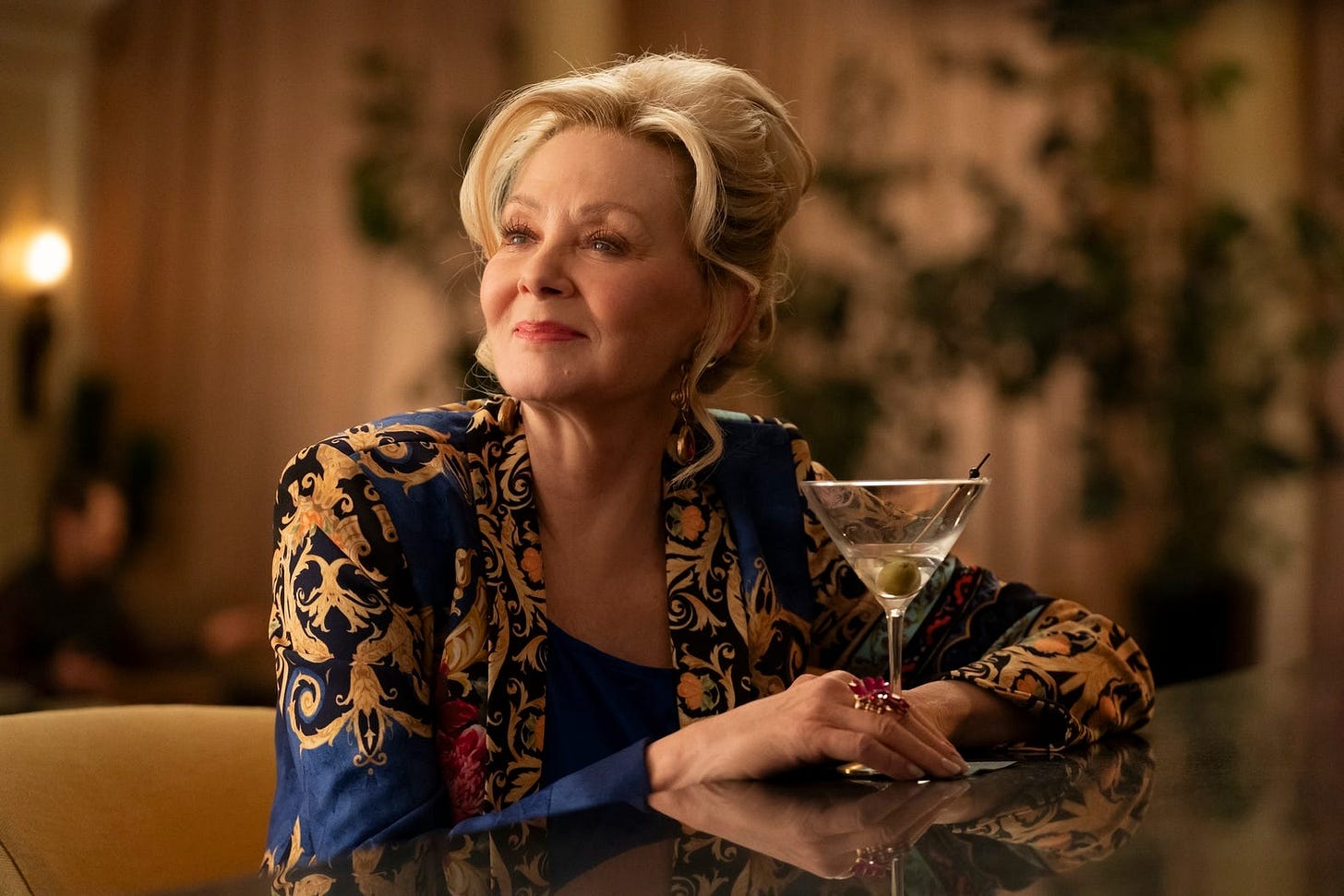
Ava is, at times, reckless and impulsive. She even self-sabotages frequently. But she shares certain characteristics with Deborah, such as her ambition, her persistence, and her deeply rooted trust in herself and her skills. Ava, on the other hand, represents the duality between thinking she’s a loser and feeling hopeless, while deep down, she holds a certain level of faith that things will turn her way and she will become a successful and good writer. As a young woman and writer, she is fascinating because she keeps trying. It does not matter how much she takes several steps back or how many times she falls; she gets back on her feet and keeps knocking on doors. Of course, the show portrays a very optimistic outcome, in which, by the time she’s 26, she’s already fully booked and working in many shows. While that’s not impossible, it is very difficult and very few writers get to that position at such a young age. The takeaway from this character is how she doesn’t give up. I like to believe that people who keep putting themselves out there, trying over and over again, eventually get to their goal. Whether it is after five, ten, or twenty years, they make it.
Ava is also incredibly reflexive and critical. Perhaps because she is a Gen-Zer, she tends to be more in touch with her feelings and her struggles. Her generation has been taught and has learned that it is okay to face your feelings. While Deborah’s generation runs away from confrontation or facing their feelings. Ava submits herself to questioning what is wrong with her, her emotions, or her actions. She stops to think what might be triggering her anxiety or stress.
My favorite Ava’s Reflections:
In S2E4, when she’s talking to Deborah at the cruise ship, reflecting about being attracted to men and women:
“I’ve realized that sometimes I conflate the rush I feel when a man shows interest in me with actual feelings of attraction, which makes sense because it feels good to get attention from the group that’s held up as, like, the leader gods of society or whatever”.
In S3E1, when she’s asked for advice on getting writing opportunities:
“What you were saying about it being hard. It is. Really, really hard. And, to be honest, that doesn’t ever change. You know, you gotta scratch and claw, and it doesn’t get better. Just gets harder. But the scratch in the very beginning is the fun part. It’s the good part… Try to enjoy where you’re at right now”.
She is curious, and although in the beginning she didn’t click with Deborah very well due to her arrogance and thinking writing for an old comedienne in Las Vegas wasn’t a good job, she developed an interest in helping Deborah grow and working as a team. She admires Deborah and wants to be like her; most importantly, she bonds with her and embraces their connection. It’s funny how Ava and Deborah are so alike but also very different and nuanced from each other. The traits they share led them to collaborate and support each other. After working together and valuing each other’s potential and abilities, they learn how to collaborate to the point where they are in synchrony. This should be a common goal among teammates: learning how to recognize each other’s qualities, areas of opportunity, and finding ways to apply everyone’s virtues to achieve a greater outcome in a project. More than teammates, different generations should do this more often.
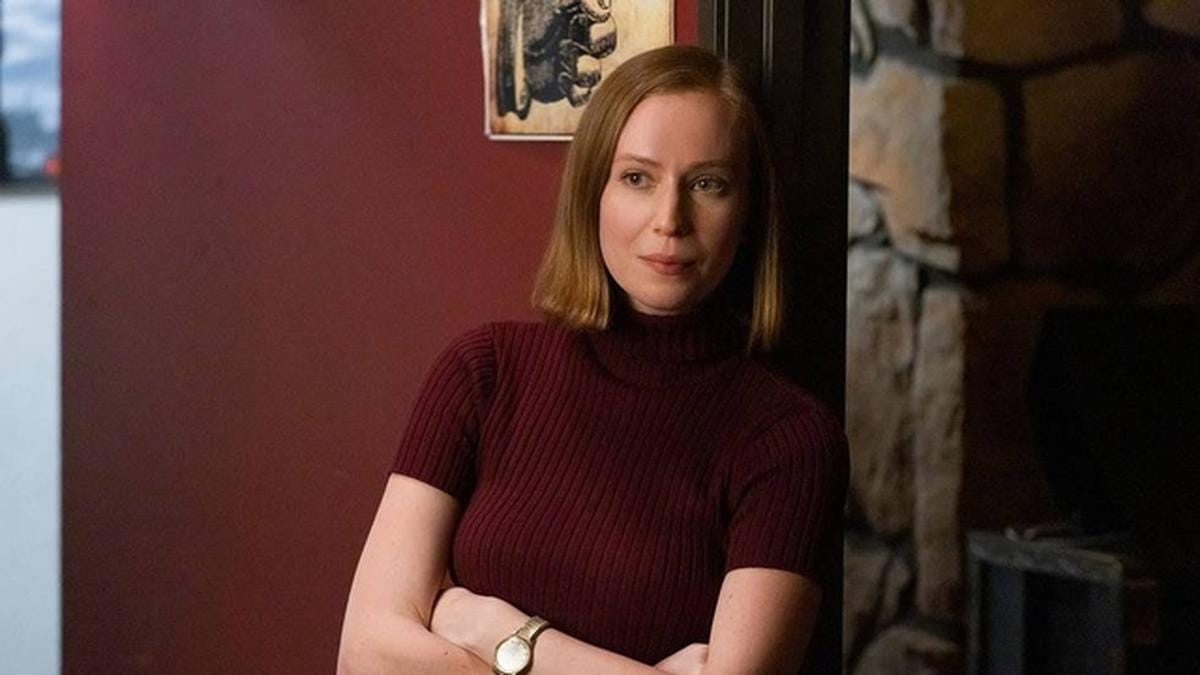
We are currently in a very divided world, driven by polarization through different media, and because of that, it’s not rare to come across Boomers making fun of Millennials, or Gen Xers making fun of Gen Zers, or Gen Zers making fun of everyone. Even within comedy and the entertainment industry, each generation carries its own arrogance, thinking they are the ones that are right or the best. Is that so? I don’t think a specific generation is better; whether we like it or not, we inherit attributes from previous ones. The typical joke of “they ran, so we could walk”. It makes me analyze my generation to a deeper extent – Gen Z prides itself on being “woke, progressive, better”, and while our generation protests more than previous ones, for example, every year big protests are held around the globe in support of Black Lives Matter, Feminism, LGBTQ+ rights, Palestine, Congo, etc. We often think we are the most valiant generation because we are vocal about our disagreements and diligent over what we think is right. But we would’ve never gotten here if it weren’t for activists protesting the Vietnam War, the Berlin Wall, the first steps of the Black Lives Matter Movement, or Feminism. So just as much as one generation can’t argue they were “better” because they were more “laid-back” or “civil”, another generation can’t argue that they started “protesting and demanding justice” when, in fact, it is the result of decades of work from previous activists.
Now, neither Deborah nor Ava is an activist, but what I’m trying to explain is that we should all aim to work together with older or younger people. If Ava and Deborah managed to work together to grow professionally, succeed, and push their project forward, we could do the same thing for any project, not just entertainment projects, but social projects, for example. And while Ava and Deborah have their proud and selfish moments in which they think they can do everything by themselves, they can´t. No one can achieve anything by themselves. We all need help, we need support, we need a team, we need community, and we need to learn how to communicate our needs and provide help for others, too.
Therefore, “Hacks” is wholesome. It doesn’t matter if you work in the entertainment industry or not; we all have a bit of Ava or Deborah inside of us. We all want to feel like we’re on top of the world, driven by our egos and praised by those around us. We want to get there by ourselves and yell back at everyone, “I told you I’d succeed!”. But that is nothing but a mere fantasy. It is not real. Even if we work hard to reach our goals, we receive guidance or support from friends, family, or teachers at some point. From time to time, we should stop and acknowledge the path we’ve crossed. We may not feel like we are where we want to be, but that frustration and the focus on how much we have left clouds our judgment from recognizing how far we’ve already walked. As Ava said, “Try to enjoy where you’re at right now”.
